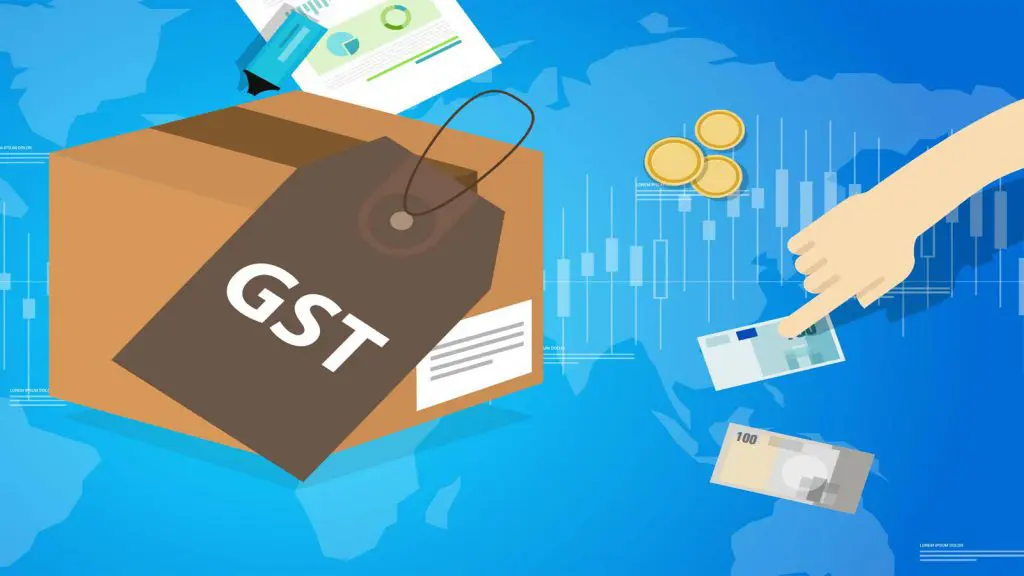Post Views: 216

Goods and Services Tax (GST)
Goods and Services Tax (GST) is a comprehensive indirect tax on manufacture, sale & consumption of goods and services throughout India.
- GST is a value-added tax on goods and services which is collected at each stage of the supply chain with applicable setoff in respect of tax paid at previous stages.
- It is a destination-based consumption tax i.e. on final consumption.
- India has adopted the concurrent dual GST model.
- All Indirect taxes except basic customs duty, export duty, and few state taxes will be covered in GST
- A GST Registration criterion is Rs. 10 Lakh for special category states and Rs. 20 Lakh for the Rest of India.
- Entities with turnover less than 50 Lakhs can opt for composition tax in lieu of GST
- There are three components of GST
- SGST- SGST stands for State GST. It is applicable on supplies within the state and will be shared with the State government
- CGST- CGST stands for Central GST. It is applicable to supplies within the state and will be shared with the Central government.
- IGST- IGST stands for Integrated GST. It is applicable to inter-state and import transactions and will be shared with Centre and State governments.
- There are 4 slabs in the GST rate structure
- 5 %
- 12 %
- 18 %
- 28 % + Cess.
- In the GST regime, return filing is 4 Step process
GST Return Due Date
| Return |
For |
Due Date |
| GSTR-1 |
Detail of Sales / Services provided |
10th Of next month |
| GSTR-2 |
Detail of Purchases / Services received |
15th Of next month |
| GSTR-1A |
Details of modification in purchases made by receiver to supplier will be communicated to the supplier |
17th Of next month |
| GSTR-3 |
Monthly return on the basis of finalization of details of outward supplies and inward supplies along with payment of tax(contains the detail of both sales and purchases made and also the tax liability) |
20th Of next month |
| GSTR-4 |
Quarterly return for composition dealers (composition dealers are taxpayers whose turnover does not exceed 50,00,000 in preceding F.Y. and opt for paying lump-sum tax) |
18th of the month next to a quarter. |
| GSTR-5 |
Return for Non-Resident taxable person (These are the taxable person who undertakes a transaction occasionally in India and does not have a permanent entity /Fixed place of business in India) |
Last day of registration |
| GSTR-6 |
ISD Return (Input service distributor is a taxable person who receives credit on behalf of its branches) |
13th of the next month |
| GSTR-7 |
Return for taxable persons deducting tax at source(This return is to be filed by the person who is required to deduct TDS as prescribed) |
10th of the next month |
| GSTR-8 |
Details of supplies effected through e-commerce operator and the amount of tax collected as required (This return is to be filed by the person who is required to collect TCS on supplies made through E-commerce operator) |
Within 10 days after the end of the month in which collection is made |
| GSTR-9 |
Annual Return |
By 31st December of next financial year |
| GSTR-10 |
Final Return (This return is to be a file on the cancellation of GST registration ) in case of cancellation of GST registration |
Within 3 months of the cancellation order |
Prashant Tanna
Share post:
Goods and Services Tax (GST)
Goods and Services Tax (GST) is a comprehensive indirect tax on manufacture, sale & consumption of goods and services throughout India.
GST Return Due Date
Follow Us On : Facebook, Twitter, Instagram, LinkedIn
E-invoicing will soon be required for businesses with a turnover of more than Rs.5-crore
Post Views: 53 Businesses who do not use e-invoicing will be deemed invalid and ineligible for ITC. Businesses having a yearly revenue of more than 10 crore rupees and a. read more…
Continue Reading